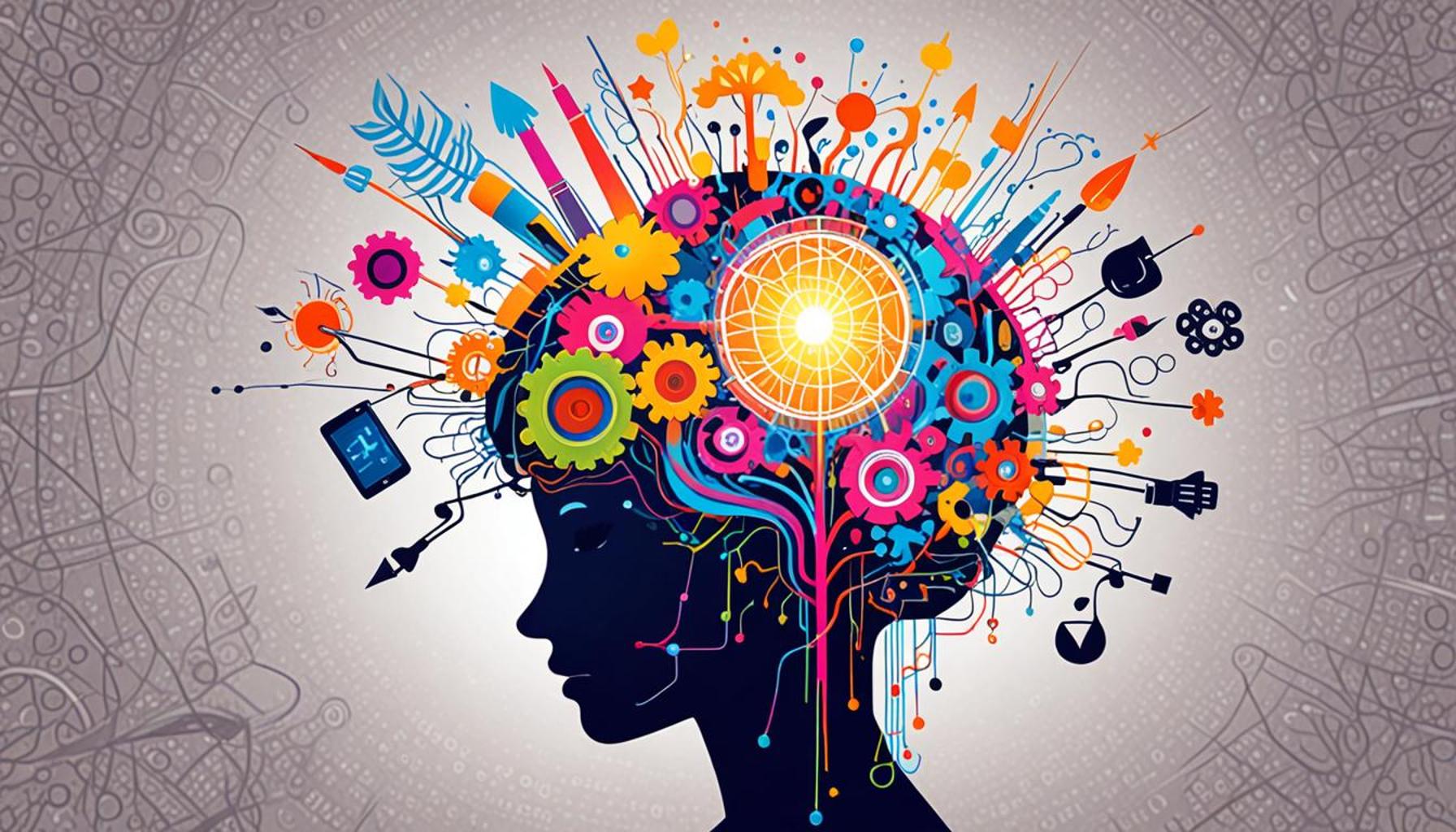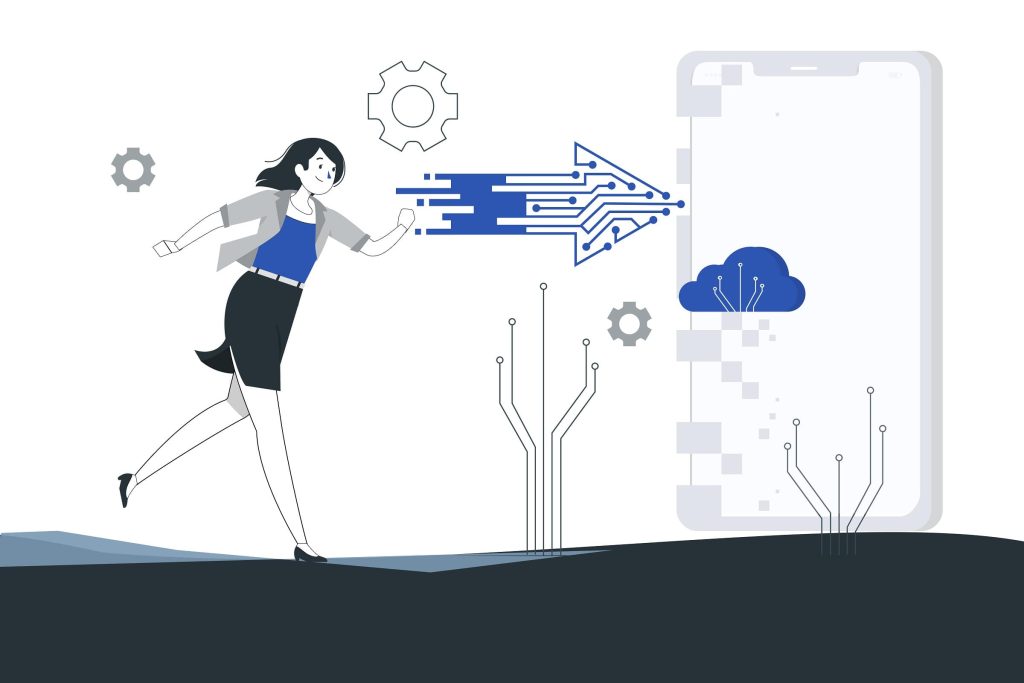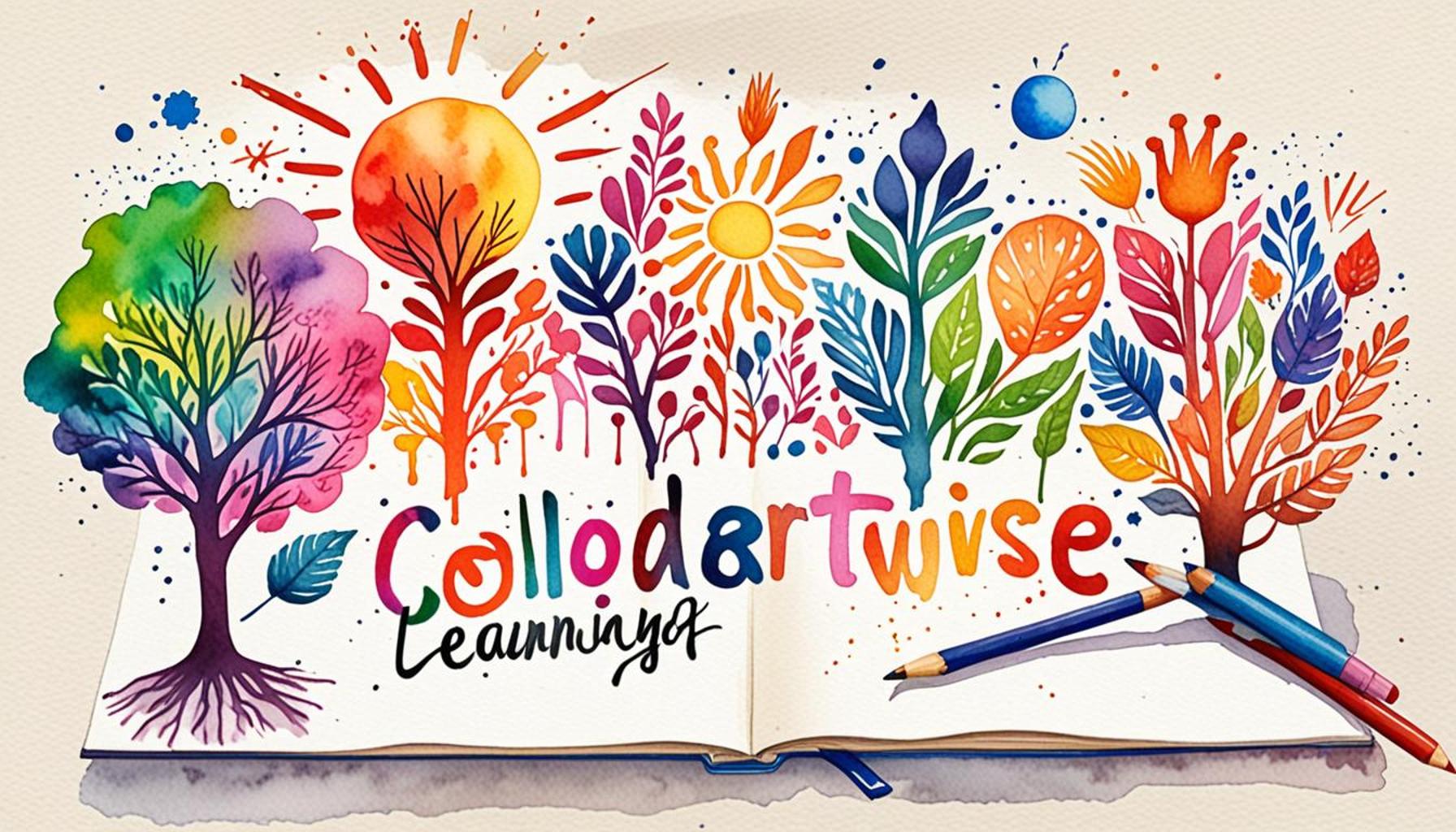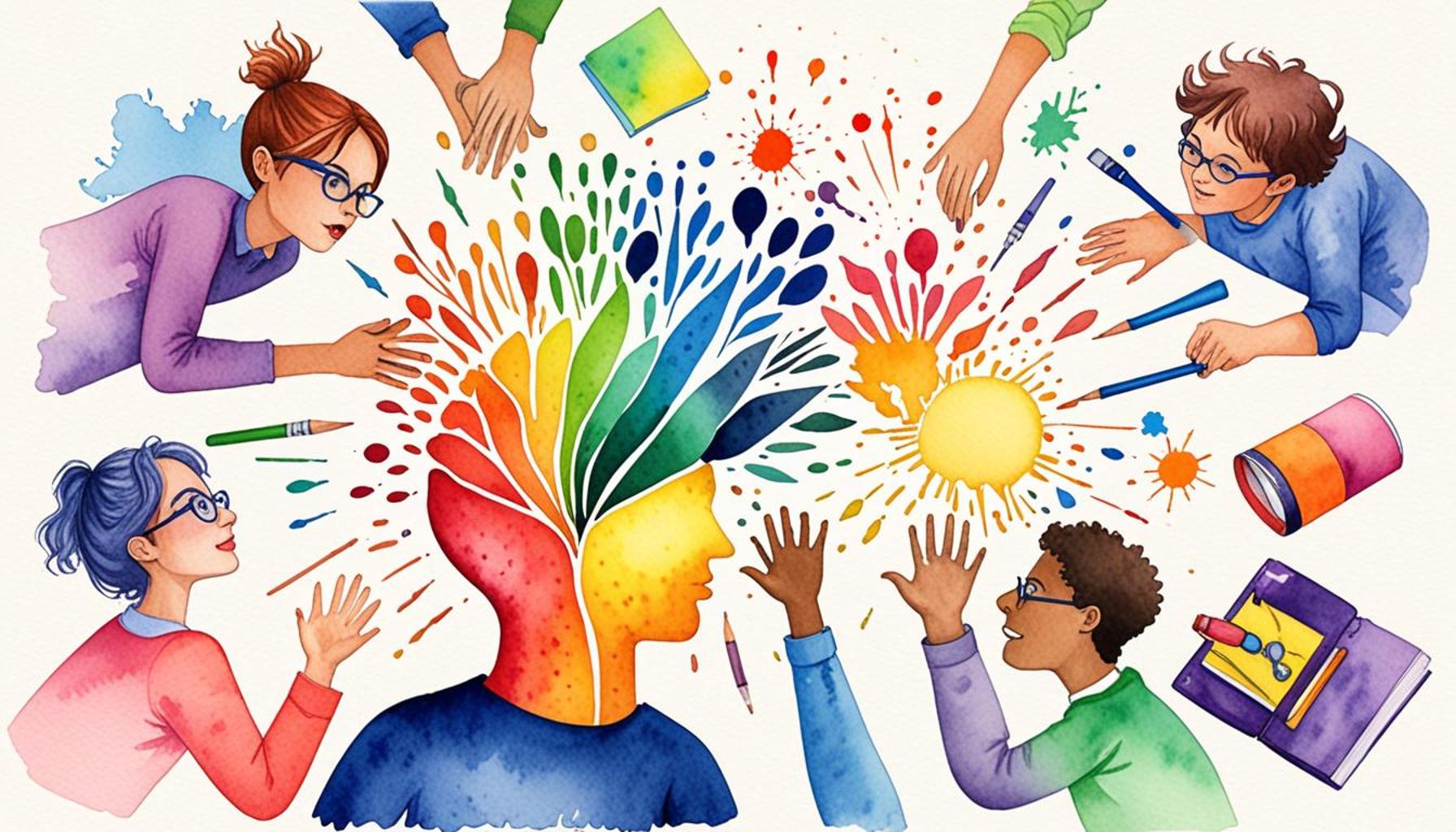The Integration of Digital Technologies in Learning Strategies to Foster a Growth Mindset

The Role of Technology in Education Reform
In an era marked by rapid technological advances, educational frameworks worldwide are undergoing transformative changes that emphasize the importance of a growth mindset. Rather than viewing challenges as insurmountable obstacles, learners are increasingly taught to see them as opportunities for growth and improvement, a philosophy that has profound implications for personal and academic success. Nigeria, being one of Africa’s most populous nations, is also transforming its educational landscape through the strategic use of technology to enhance learning experiences.
The integration of digital technologies into education in Nigeria comes with a host of benefits that address the diverse needs of learners and the educational system as a whole. Some of these advantages include:
- Enhanced Engagement: Tools such as interactive whiteboards, educational apps, and online games have made lessons more engaging and exciting. For instance, platforms like Quizizz and Kahoot! allow teachers to create quizzes that make learning fun while tracking student performance. This dynamic approach not only captures students’ attention but also encourages participation, leading to a more effective learning environment.
- Personalized Learning: With the rise of digital platforms like e-learning sites and mobile applications, students in Nigeria now benefit from customized educational experiences tailored to their unique learning styles and paces. For example, platforms like Tuteria and Andela Academy provide skill-building opportunities that adapt to an individual’s knowledge level, ensuring that no learner is left behind.
- Access to Resources: One of the most significant advantages of technology in education is the wealth of information available at students’ fingertips. The internet has broken geographical and socio-economic barriers, giving learners in rural areas access to quality educational resources and materials. Initiatives such as the Nigerian Educational Research and Development Council (NERDC) are also working towards providing quality and relevant content online.
Moreover, the adoption of digital tools fosters the development of essential skills such as critical thinking, problem-solving, and collaboration. These competencies are crucial for nurturing a growth mindset, which equips learners to navigate the complexities of modern life and the job market.
As Nigerian educators and policymakers strive to close the educational gap and ensure equitable access to quality education, the challenge lies in effectively integrating technology into learning strategies. By doing so, they can cultivate a generation of innovative thinkers who are adaptable and ready to tackle the challenges of tomorrow. Embracing technological solutions not only enhances the learning experience but also prepares students to thrive in a digital-first world, ultimately paving the way for a brighter future for Nigeria.
SEE ALSO: Click here to read another article

Digital Learning Tools as Catalysts for Growth Mindset
The integration of digital technologies in educational settings is not merely about incorporating gadgets into the classroom; it is about reshaping the entire learning experience. In Nigeria, where educational disparities are evident, the proper application of technology can act as a powerful lever for fostering a growth mindset. By leveraging digital learning tools, educators can encourage students to embrace challenges, process feedback constructively, and develop resilience—traits that are essential for personal and academic growth.
With a plethora of digital resources available, teachers have an unprecedented opportunity to cultivate an environment conducive to a growth mindset. Flipped classrooms, where students engage with instructional content at home through videos and interactive platforms and then apply that knowledge during in-class activities, exemplify this transformative approach. In such setups, students are not just passive consumers of information; they take an active role in their learning journeys, which encourages them to take risks and learn from their mistakes.
The following digital tools are instrumental in driving this paradigm shift:
- Learning Management Systems (LMS): Platforms like Google Classroom and Moodle facilitate collaborative learning by providing a space for students to share resources, submit assignments, and offer feedback to peers. This collaboration strengthens their problem-solving skills and reinforces the idea that learning is a collective, iterative process.
- Gamified Learning: By incorporating game-like elements such as point systems and rewards, tools like ClassDojo transform mundane learning into exciting challenges. This approach not only boosts engagement but also allows students to learn that failure is simply a stepping stone toward mastery.
- Interactive Assessments: Utilizing apps like Socrative enables teachers to conduct real-time formative assessments, giving immediate feedback. Research shows that timely feedback encourages students to reflect on their performance and adjust their strategies accordingly—an essential component of a growth mindset.
Moreover, the power of online communities cannot be underestimated. Digital platforms allow students to interact beyond the confines of their classrooms, facilitating discussions that promote critical thinking and broaden their perspectives. Initiatives such as virtual exchanges and collaborative projects with global partners provide learners with essential opportunities to voice their opinions and develop a sense of agency in their education.
As Nigeria navigates an era of educational reform, these digital learning strategies are not just tools for improving academic performance; they are essential for fostering an agile mindset among students. By equipping learners with the tools to adapt and thrive, the educational system can pave the way for a generation that views challenges not as setbacks, but as opportunities for growth and learning.
| Advantage | Explanation |
|---|---|
| Increased Engagement | Digital technologies, such as interactive apps and online platforms, make learning more engaging and enjoyable for students. |
| Personalized Learning | Technologies allow for tailored learning experiences that cater to individual student needs, fostering a growth mindset. |
The integration of digital technologies in educational strategies plays a pivotal role in promoting a growth mindset. With increased engagement as a prime advantage, students are actively participating in their learning journeys. This increased interaction, facilitated by digital learning tools, enhances motivation and a sense of ownership over their educational experience. Moreover, these technologies enable personalized learning pathways, allowing educators to adapt their teaching methods to meet diverse student needs. As a result, learners can progress at their own pace, embracing challenges and viewing failures as opportunities for growth. Such an approach not only helps in enhancing knowledge retention but also builds resilience, critical for developing a growth mindset. Encouraging students to leverage technology in their learning reinforces their ability to adapt and excel, preparing them for the demands of the modern world.
CHECK OUT: Click here to explore more
Personalized Learning through Adaptive Technologies
In the realm of education, one size does not fit all. This adage becomes even more pronounced when considering the diverse learning needs of students across Nigeria. The application of adaptive learning technologies provides educators with robust tools to tailor their teaching strategies. By employing algorithms and data analytics, these platforms can respond to each learner’s unique pace and style, empowering them to explore subjects in ways that resonate with their interests and strengths.
Platforms such as Khan Academy and Edmodo allow students to navigate their learning paths, honing in on subjects where they need improvement while progressing in areas of strength. This individualized approach not only affirms the notion that intelligence is not fixed but also instils a sense of ownership in learners, fostering a growth mindset. When students experience tailored learning that acknowledges their efforts rather than just their outcomes, they are more likely to embrace challenges and persist through difficulties.
One significant advantage of digital technologies is the extensive repertoire of learning resources they provide. With access to videos, articles, and interactive labs, students can delve deeply into topics of interest, seeming to transcend educational limitations typical within the conventional classroom structure. For instance, when students in rural areas of Nigeria can access the same quality of resources as their urban counterparts, equity in education becomes more achievable. This access transforms how students perceive their learning capabilities, moving them away from a fixed mindset to one that thrives on exploration and curiosity.
Leveraging Social Media for Collaborative Learning
Another intriguing avenue for integrating digital technologies in education is the use of social media platforms to enhance collaborative learning. Platforms like Facebook and Twitter, often overlooked for academic use, can be repurposed to create learning communities. Instructors can facilitate group discussions, share insightful articles, and encourage peer feedback within dedicated groups. This social interaction fosters an environment where learners can contribute and learn from one another, thereby cultivating a supportive atmosphere that is crucial for a growth mindset.
Students, especially the youth, are already familiar with these platforms, which act as a bridge to engage them more effectively in educational discourse. By coupling social media with structured learning objectives, educators can stimulate a culture of inquiry where questioning and constructive criticism are welcomed. As students interact with one another, they learn to face challenges collectively, reinforcing the idea that collaborative problem-solving is essential for success in the 21st century workforce.
Utilizing Data to Drive Growth
Data-driven decision-making is gaining traction in education, particularly in the context of personalized and adaptive learning. Through assessment tools and analytics, teachers can monitor student performance and identify patterns that highlight areas for improvement. Programs like Google Forms can facilitate quizzes that generate actionable insights, allowing teachers to strategically adapt their lessons based on student feedback and performance metrics.
Furthermore, incorporating data literacy into the curriculum empowers students to take charge of their own learning. When learners understand the importance of data, they can analyze their progress, set personal goals, and reflect on the steps necessary for improvement. This self-awareness nurtures resilience, indicating that obstacles can be surmounted through strategic efforts—an essential tenet of a growth mindset.
As Nigeria continues to integrate digital technologies into its education system, these innovative approaches—personalized learning, collaborative social media engagement, and data-driven instruction—offer promising pathways. By focusing on these strategies, educators can inspire an entire generation to redefine their failures and challenges as opportunities for growth and learning. In doing so, the educational landscape evolves into one where every student is motivated to reach their fullest potential.
CHECK OUT: Click here to explore more
Conclusion
In conclusion, the integration of digital technologies into learning strategies presents a transformative opportunity for education systems across Nigeria. By focusing on personalized learning, collaborative engagements through social media, and data-driven growth, educators can cultivate an environment that champions a growth mindset. The ability to tailor educational experiences to meet diverse learning needs not only empowers students but also nurtures a culture of resilience and adaptability.
As we move forward, the importance of equitable access to resources cannot be understated. Bridging the gap between urban and rural educational environments fosters a holistic understanding that intelligence and achievement are products of effort and persistence, rather than innate ability. With tools like Khan Academy and Google Forms, all students are provided with the chance to explore their interests deeply and systematically track their progress. This technological inclusivity aligns perfectly with the need to promote self-directed learning in a rapidly evolving global landscape.
Furthermore, the repurposing of social media for academic collaboration not only engages students but also prepares them for future teamwork in professional settings. As learners navigate challenges together, they develop essential social skills and a willingness to embrace constructive feedback—a vital aspect of personal and academic development. Through constant reflection driven by data analytics, both educators and students can identify growth opportunities and make informed decisions for continuous improvement.
In essence, the future of education in Nigeria, ripe with possibilities, depends on the innovative integration of these digital tools. It is a clarion call for educators, policymakers, and stakeholders to leverage technology to inspire a generation that sees challenges as stepping stones to success. By fostering a growth mindset, we can ensure that every student is equipped to navigate the complexities of the modern world.



